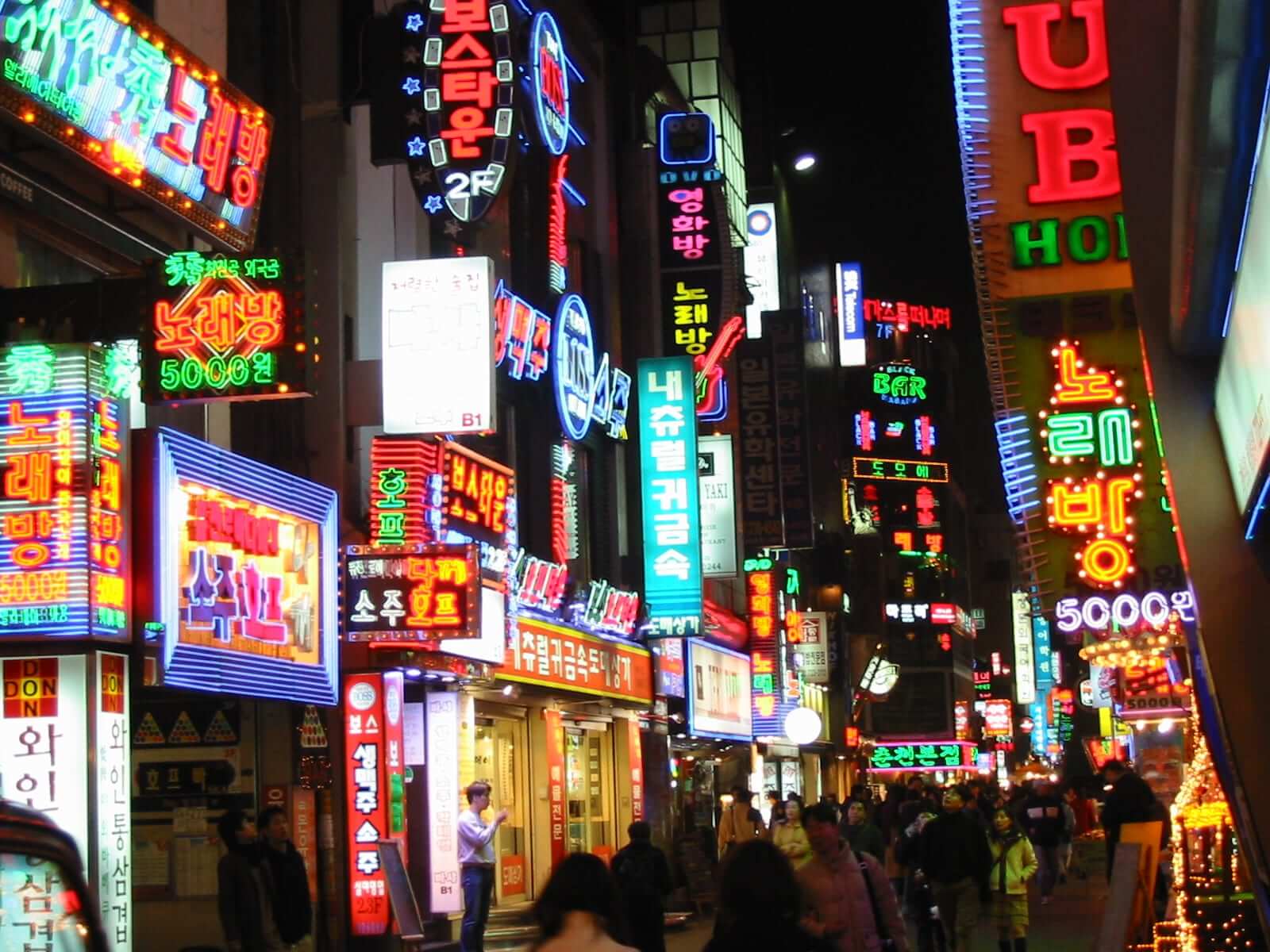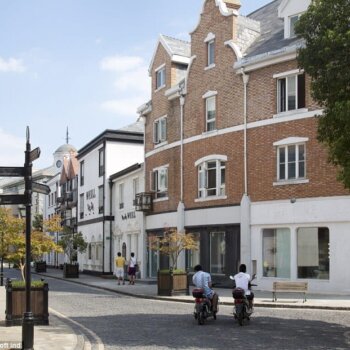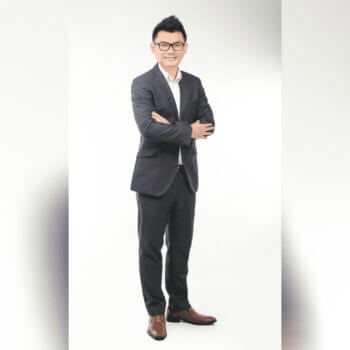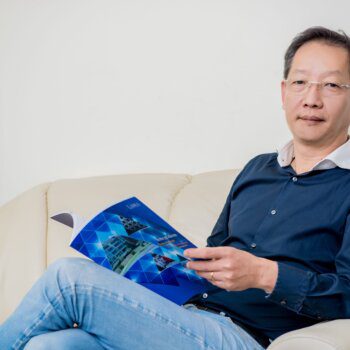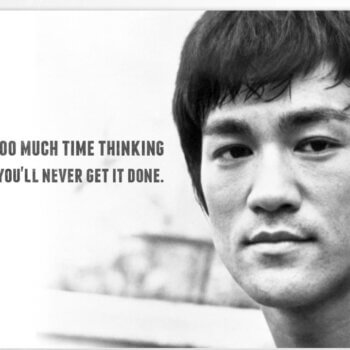Imagine this scenario: You wake up in a bustling city and have breakfast with the guest you rented your spare room to. You then ride in a shared car to your job where you give tours of the city to out-of-towners. On your lunch hour you participate in a public transportation flash mob and after work you swing by a tool sharing center to finish a project. Once home, you enjoy a community meal at your neighbour’s apartment and spend the evening packing for a trip using borrowed luggage that you found via your smartphone.
Where are you? Would it surprise you if I said Seoul?
One of the great megacities of the world, Seoul, South Korea, is positioning itself to be a model city for sharing. A new, city-funded project called “Sharing City, Seoul” aims to bring the sharing economy to all Seoul citizens by expanding sharing infrastructure, promoting existing sharing enterprises, incubating sharing economy startups, utilizing idle public resources, and providing more access to data and digital works.
Created in September of 2012 as part of the Seoul Innovation Bureau’s plan to solve social, economic and environmental problems in innovative ways, the Sharing City is a move to better the lives of Seoul citizens through sharing. It’s also a way to maximize the city’s resources and budget.
The goal of the Sharing City is to create jobs and increase incomes, address environmental issues, reduce unnecessary consumption and waste, and recover trust-based relationships between people. According to Kim Tae Kyoon, director of Seoul’s Social Innovation Division, the recovery of a sense of community is an important aspect of the project.
“The Sharing City not only creates new jobs, increases income and efficiently uses resources,” he says, “but it will reproduce communities that disappeared, due to rapid urbanization and industrialization, in a modern mode using information technologies and social networking services.”
With more than 10 million people living within 234 square miles, Seoul is in a good position to demonstrate the benefits of tech-enabled sharing. It’s one of the most populous cities in the world and one of the most connected. It has a highly-developed tech infrastructure, widespread public wifi, and 60 percent of South Koreans own a smartphone.
Seoul also faces serious challenges. Overpopulation and urbanization have led to housing, transportation and parking shortages, pollution, and resource overuse. These are issues that other municipalities face, but they’re amplified by Seoul’s population density. The Seoul government, led by Mayor Park Won-soon, soon who has a history of social activism and innovative problem-solving, has embraced the sharing economy as a way to remedy some of these issues and is taking a proactive approach to utilizing and growing the city’s sharing infrastructure.
Seoul’s ambitious sharing economy agenda
One of the first global cities to officially endorse the sharing economy, Seoul is actively working to create a culture of sharing. The below are the key actions the city is taking, all part of a comprehensive plan that encompasses public awareness, business incubation, new regulation, and mobilization of the city’s underutilized assets:
- Vetting and designating sharing nonprofits and corporations. By putting the city’s stamp of approval on select sharing services, the city builds the public’s trust in the sharing economy and introduces citizens to proven and trusted sharing services.
- Promoting sharing enterprises. City-wide promotion of sharing enterprises generates buzz and strengthens the public’s perception of the Sharing City as something that crosses demographic boundaries.
- Publicizing Seoul’s brand as the Sharing City. Branding Seoul as one of the great cities for sharing is a powerful way to attract international attention, accelerate the city’s sharing economy and position the city as a forward-thinking hub of innovation.
- Subsidizing the expenses of 10 sharing enterprises with 250 million won (U.S. $240,000, EUR 180,000). Providing 10 sharing enterprises with the funding to either launch or scale up their platform gives the enterprises a bit of financial breathing room to focus on building or enhancing their service.
- Incubating approximately 20 sharing startups with office space, consultation, and subsidies. Providing space, guidance and some funding to sharing startups will allow businesses to take their service to the next level and the city to support innovative ideas and thinkers.
- Creating a Seoul Sharing Promotion Committee made up of representatives from a variety of sectors including academic, legal, press, welfare, transportation and more. Having a team of representatives from numerous sectors who are all on board with the Sharing City plan is a good way to extend the reach of the sharing economy, make sure that it’s being promoted appropriately in the various sectors and ensure that sharing is part of the discussion when decisions within those sectors are being made.
- Creating an International Sharing City Conference. Creating a Sharing City Conference further brands Seoul as an innovative locale and provides other municipalities from around the world a chance to see a sharing city plan in action.
- There’s more. Officials are also working to correct obstructive statutes or systems and facilitate communication between sharing enterprises and the central government. The Social Innovation Division will handle sharing-related civilian proposals and requests.
In addition, the city is introducing a 492 vehicle car sharing service; opening select government parking lots and municipal buildings to the public during off-hours and idle days; connecting senior citizens who have extra rooms with students who need a room; installing tool libraries and shared bookshelves in communities throughout the city; and more.
Sharing enterprises chosen for city support include home-stay platforms Kozaza and Labo Korea; Woozoo, a company that remodels old houses into shared houses; Wonderlend and Billi, companies that facilitate the lending and borrowing of idle goods; car sharing service SoCar; Kiple, a children’s clothing exchange; The Open Closet, a company that distributes donated suits to young job seekers; the Living and Art Creative Center, a creative writing and art education space; and Zipbob, a meal sharing platform.
The city has also committed to supporting sharing in the digital realm. Creative Commons Korea (CCK) is an instrumental partner in the city’s plan to share information and resources about the Sharing City project. The organization created and powers a newly launched online portal called ShareHub that serves to educate and inform citizens about the Sharing City, share news about the sharing economy and provide a directory of sharing services.
“The directory will hopefully provide an opportunity for discovery,” says full-time Creative Commons Korea activist Diane DaYe Jung. “People will have the services at their fingertips and it will be more convenient for them look up what they want and need.” She adds, “hopefully, we’ll get people’s attention and let them see how sharing is convenient and more reasonable than traditional consumption…”
Working with CCK also ensures that the sharing spirit extends to digital works including art, photos and public data.
“Government data, public data, is paid for by our taxes,” says Jung. “I think we have good reason to ask them to open that data so that we can freely use it.”
As both a Creative Commons activist and a Seoul citizen, Jung is enthusiastic about the Sharing City project.
“It’s really great to hear that the government is driven by the social motivation of sharing,” she says. “As a Creative Commons activist, I believe that we need to spread the idea of sharing to the general public.” She continues, “as a citizen, it’s great because I’ve always wanted some kind of policy that’s really close to our daily life. The sharing economy provides a lot of affordable options for most of us.”
San Francisco an inspiration, Seoul hopes to inspire Asia and beyond
Inspired, in part, by the sharing economy in San Francisco, and specifically the Sharing Economy Working Group (which Shareable helped launch), a cross-departmental group created to develop model policies for the sharing economy, Seoul also referenced the Policies for a Shareable City reports when developing its Sharing City policies.
Unlike San Francisco however, sharing activities in Seoul’s private sector are “in its infant stage”, says Kim. So the city government is playing a more hands-on role with the development and promotion of sharing enterprises.
Even at this early stage, the Sharing City is proving to be a model for other cities in South Korea. Representatives from Gwangju Metropolitan City and Busan Metropolitan City visited Seoul to learn about the city’s sharing program and have implemented sharing policies in their own cities.
“Other cities actively discuss the Sharing City,” says Kim, “and we expect sharing culture will spread to many other cities in Korea.” He says that the central government notes the relationship between sharing and the creative economy, which is the new Korean president’s core policy.
According to Kim, the Seoul government hopes to exchange and collaborate with other cities abroad to activate sharing. “We wish that Seoul’s sharing city policy can spread to other Asian cities,” he says, “and further, to many other cities in the world.”
“The ultimate goal of Seoul Metropolitan Government’s Sharing City,” he continues, “is to share lives among dispersed people, recover trust and relationships, and shape a warm city in terms of people’s heart.”
_______________________
About the Author
This article was written by Cat Johnson, writer of United Nation University’s affiliated Our World blog. See more.
